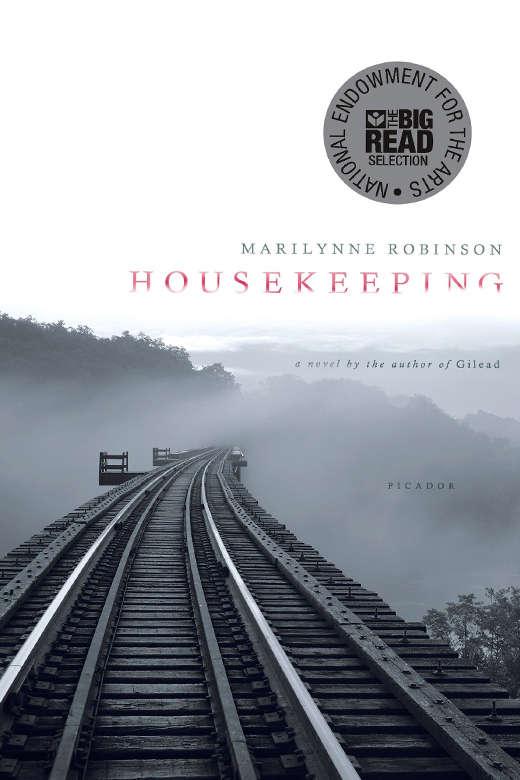By Marilynne Robinson
Keeping house is not particularly captivating, reading Housekeeping is.
Housekeeping is the acclaimed 1981 novel from Marilynne Robinson, the Pulitzer Prize-winning author of Gilead. Ruth and Lucille, abandoned and orphaned sisters, come of age under the care of a succession of fleeting relatives before their Aunt Sylvie enters the scene. Housekeeping caused me to grapple with the ephemeral nature of life, what matters and why.
I marvel at Marilynne Robinson's creative powers the way the psalmist exults in God's omnipotence. "He determines the number of the stars and calls them each by name" (Psalm 147:4). Robinson weaves poetic prose that leaves me staring in wonder:
Every spirit passing through the world fingers the tangible and mars the mutable, and finally has come to look and not to buy.
When she had been married a little while, she concluded that love was half a longing of a kind that possession did nothing to mitigate.
To crave and to have are as like as a thing and its shadow. For when does a berry break upon the tongue as sweetly as when one longs to taste it, and when is the taste refracted into so many hues and savors of ripeness and earth, and when do our sense know any thing so utterly as when we lack it?
Such prose is proof enough for me we are created in His image. Whether it is Robinson's fiction or essays (When I Was A Child I Read Books) her sentences are hanging gardens; beauty, intrigue, rest and reflection await those who enter.
For me, it is not that Ruthie, Sylvie and their transitory cohort are so compelling. Reading Housekeeping is, at times, like walking through someone else's dream. Ethereal! But it is our dreams that arrest our attention, provoke fear and wonder, and push us to deeper thoughts. Perhaps this is why this passage is one of many I have underlined:
And it was he who brought us here, to this bitter, moon-pulled lake, trailing us after him unborn, like the infants he had painted on the dresser drawers, who garments swam in some ethereal current, perhaps the rim of the vortex that would drag them down out of that enameled sky, stripped and screaming. (page 149)
You don't read Housekeeping to be entertained, but to be provoked to thought. If you read her book quickly, you are not reading it well.

